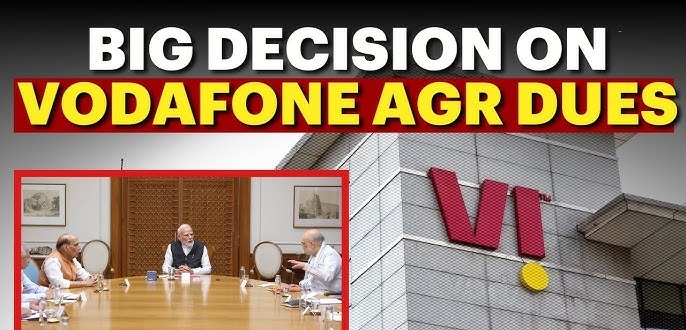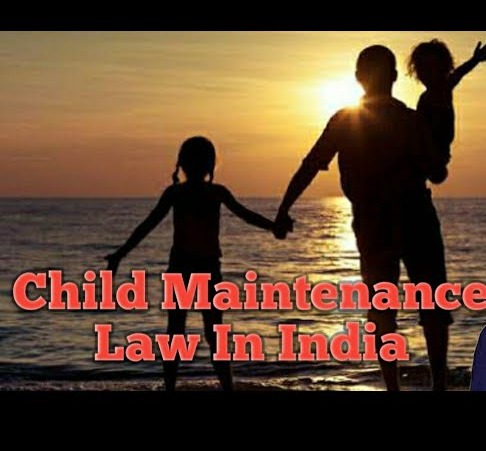John Mathew, J.@mdashIn an appeal u/s 54-A(2)(ii) of the Employees'' State Insurance Act, 1948, against the decision of the Medical Board determining the disablement of an insured person, is it proper for the Employees'' Insurance Court to determine the percentage of disablement mainly taking into consideration the circumstance that the insured person is practically incapable of doing the work or the employer is not willing to give him any suitable work or that his earning capacity is nil since he is unemployed?
2. This important question arises in this appeal filed by the Regional Director, Employees'' State Insurance Corporation, Trichur (hereinafter referred to as "the E.S.I. Corporation"). The appellant before the Employees'' Insurance Court who is the respondent herein, is hereinafter referred to as the employee. The employee met with an accident in the course of his employment on 12th December, 1987, when he was working as a Winder in M/s. Kerala Spinners Ltd. After discharge from the hospital where he was treated, he had complaints of severe pain at the lower portion of his vertebral column which was diagnosed as " intervertebral disc prolapse" which was caused due to the accident. He was examined by the Employees'' State Insurance Medical Board, Alleppey. As per Exhibit P-5 decision of the Medical Board dated 12th August, 1988, he had 20 percent permanent disablement. He challenged the decision of the Medical Board by filing an appeal before the Employees'' Insurance Court from which this M.F.A. arises.
3. Before the Employees'' Insurance Court, the employee examined himself and a doctor who issued Exhibit P-4, medical certificate. He also produced Exhibits P-1 to P-5. The Employees'' State Insurance Corporation examined D.W.-1 who was one of the doctors in the Medical Board. After the closing of the evidence the lower court asked the Employees'' Stale Insurance Corporation to make an enquiry whether any lighter employment could be provided to the employee. After making the enquiry, it was submitted that the employer had informed them that they are not in a position to give any suitable lighter work to the employee. The Employees'' Insurance Court held that the employee is practically incapable of doing the work which will be normally provided to him in his company, and so his earning capacity is nil. Therefore, by the order under challenge the Court directed the Employees'' State Insurance Corporation to give him full rate of the benefit as if his disability was 100 percent. The Court also observed that the Employees'' State Insurance Corporation may make proportionate deductions as and when it is I found that the employee is gainfully employed in any place.
4. The appeal before the Employees'' State Insurance Corporation was one under Section: 54-A(2)(ii) of the Employees'' State Insurance Act. u/s 54A, the employee is given the option either to challenge the decision of the Medical Board before the Medical Appellate Tribunal or before the Employees'' Insurances Court. The Medical Boards are constituted under Regulation 75 of the Employees'' State Insurance (General) Regulations, 1950.
Therefore, the Employees'' Insurance Court." had to determine the case of the employee for permanent disablement benefit after examining whether the decision of the Medical Board was proper or not. The Court will have to determine the question of disablement keeping in mind, Section 54 of the Employees'' State Insurance Act, which is as follows:
"54. Determination of question of disablement, - Any question-
(a) whether the relevant accident has resulted in permanent disablement; or
(b) whether the extent of loss of earning capacity can be assessed provisionally or finally; or
(c) whether the assessment of the proportion of the loss of earning capacity is provisional i or final; or
(d) in the case of provisional assessment, as to period for which such assessment shall hold good
shall be determined by a Medical Board constituted in accordance with the provisions of the regulations and any such question shall hereinafter be referred to as the ''disablement question.''"
Since there is no specific provision as to the manner in which the Court is to examine the correctness or otherwise of the report of the Medical Board, the Court will have to decide the question after considering the evidence adduced before it and keeping in mind the provisions of the Employees'' State Insurance Act and Regulations.
5. As provided u/s 54A, the Employees'' Insurance Court will have to determine the extent of loss of earning capacity of the insured person. The circumstance that the employer is refusing employment even though the Medical Board determined the employee''s disablement at 20 percent, can only be one of the factors to be taken into account. But, it is not safe to overrule the opinion of the Medical Board, members of which are technically qualified to assess the disablement, without further evidence. If the party is unable to produce such evidence before the Court, normally the Court should hold that there is no material to interfere with the finding of the Medical Board. Here, the employee is challenging the decision of the Medical Board. The burden of establishing that the finding of the Medical Board was not proper is on the employee. There is very little scope for the Court, which is not technically equipped, to assess the quantum of disablement or to interfere with the finding of the Medical Board on grounds which are not established before it or on compassionate grounds which cannot be tested by the superior court. Section 51 of the Employees'' State Insurance Act which grants disablement benefit to the employees is as follows:
"51. Disablement benefit.-
Subject to the provisions of this Act,-
(a) a person who sustains temporary disablement for not less than three days (excluding the day of accident), shall be entitled to periodical payment at such rates and for such period and subject to such conditions as may be prescribed by the Central Government;
(b) a person who sustains permanent disablement, whether total or partial, shall be entitled to periodical payment at such rates and for such period and subject to such conditions ] as may be prescribed by the Central Government."
Sections 2(15-A) and (15-B) of the Employees'' State Insurance Act define "permanent: partial disablement" and "permanent total disablement" as follows:
"2(15-A). ''permanent partial disablement'' means such disablement of a permanent nature, as reduces the earning capacity of an employee in every employment which he was capable of undertaking at the time of accident resulting in the disablement:
Provided that every injury specified in Part II of the Second Schedule shall be deemed to result in permanent partial disablement;
(15-B). ''permanent total disablement'' means: such disablement of a permanent nature as incapacitates an employee for all work which he was capable of performing at the time of the accident resulting in such disablement:
Provided that permanent total disablement shall be deemed to result from every injury specified in Part I of the Second Schedule or from any combination of injuries in Part II thereof where the aggregate percentage of the loss of earning capacity, as specified in the said Part II against those injuries, amounts to one hundred percent or more."
6. From this it is clear that only if the injury is specified in Part I or Part II of the Second Schedule to the Act, the deeming provision contained in Sub-section (15-A) or (15-B) of Section 2 will be applicable. Therefore, if the injury is not one specified in either of these Parts, the Court will have to examine as to what extent the ingredients of the sub-sections are established in the case in hand. In other words, whether the employee has suffered permanent partial disablement or permanent total disablement will be a question of fact to be proved before the Court, if the injury is not one specified in the Second Schedule. If such disablement is proved, then in the case of permanent partial disablement the Court has to examine whether the earning capacity of the workman has been reduced in every employment he was capable of undertaking at the time of the accident and not merely the particular employment in which he was engaged at the time of the accident resulting in the disablement. (See
7. The Court will have to enter a specific finding that the injury suffered by the employee caused him disablement of a permanent nature which reduces his earning capacity in every employment which he was capable of undertaking at the time of the accident. Sub-section (15-A) contemplates reduction in the earning. This is clear from the fact that the "capacity" itself is determined with reference to every employment which he was capable of undertaking at the time of the accident. The words refer to his capability generally of doing any job to earn his livelihood. (See Munshigiri v. Employees State Insurance Corporation, [1988] Lab IC 320 (MP)).
8. In cases where the claim is on the basis that the employee has suffered permanent total disablement as defined u/s 2(15-B) of the Act, if the injury is not one included in the list of injuries in Part I of the Second Schedule, whether the employee has suffered permanent total disablement will be a question of fact to be proved before the Court. The Court has to examine whether the disablement is of such a character that the person concerned is unable to do any work and not only the work which he was doing at the time of the accident. (See General Manager, G.I.P.Rly v. Shanker [1950] 2 FJR 127 (Nag), All India Construction Co. Ltd. v. Munshi Ram AIR 1931 Lah 319, and
9. In the present case, the Employees'' Insurance Court has not referred to Exhibit P-5 decision of the Medical Board or the evidence of D.W.-1, who was one of the members of the Medical Board, According to the decision of the Medical Board, the loss of earning capacity was finally determined as 20 percent., and was declared to be of a permanent nature. On the other hand, Exhibit P-4 certificate, issued on the day previous to the examination of the employee by the Medical Board, does not assess the loss of earning capacity. According to Exhibit P- 4, he has pain at lumbo sacral junction with restriction of movement and a positive lasegues sign. The doctor who issued Exhibit P-4, was examined as P.W.-2. As P.W.-2, he stated that the employee cannot stand for a long time and cannot carry heavy weight. He cannot be in a stooping position. Squatting will be painful. He can sit in a chair. In cross-examination, he stated that he can do the work of coir winding. From a perusal of the order of the Employees'' Insurance Court, it would appear that the decision turned on the circumstance that the employer is not willing to give him any suitable work and so his earning capacity was reduced to nil. We do not think that such an approach was justified. If the employer illegally refuses to give employment to the worker the Court is not helpless in enforcing the rights of the worker. Therefore, the Court will have to examine whether the employee is unable to do any kind of work. A decision on this point may be arrived at after considering any further evidence that may be adduced by the employee. In case the Court considers it necessary, a further medical examination may be ordered by the Court.
10. Under these circumstance, we are of the opinion that the appeal filed by the employee will have to be reconsidered by the Employees Insurance Court. Accordingly, we set aside the order of the Employees'' Insurance Court and remand the case to the Court for fresh consideration and disposal in accordance with law and in the light of the observations in this judgment. There will be a further direction that the Employees'' State Insurance Corporation will pay/continue to pay to the employee compensation on the basis that the employees'' disablement is 20 percent., until further orders of the Court.

